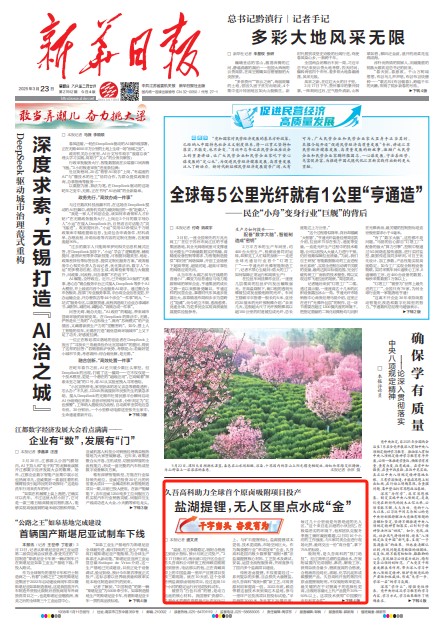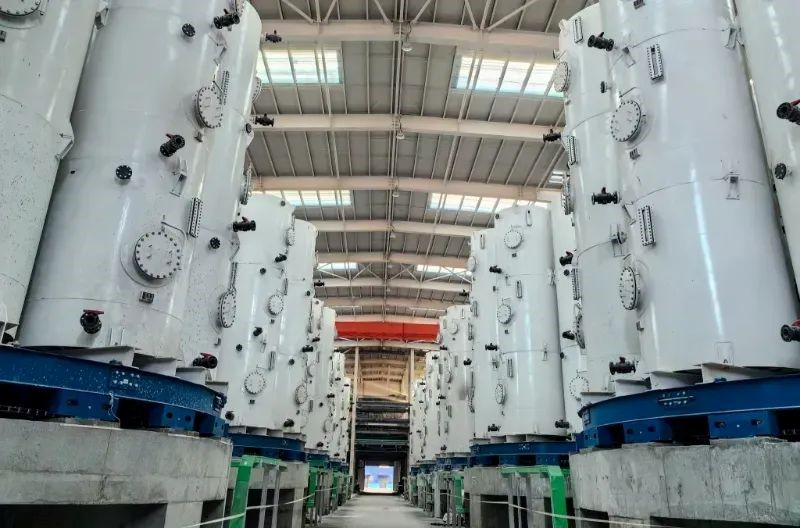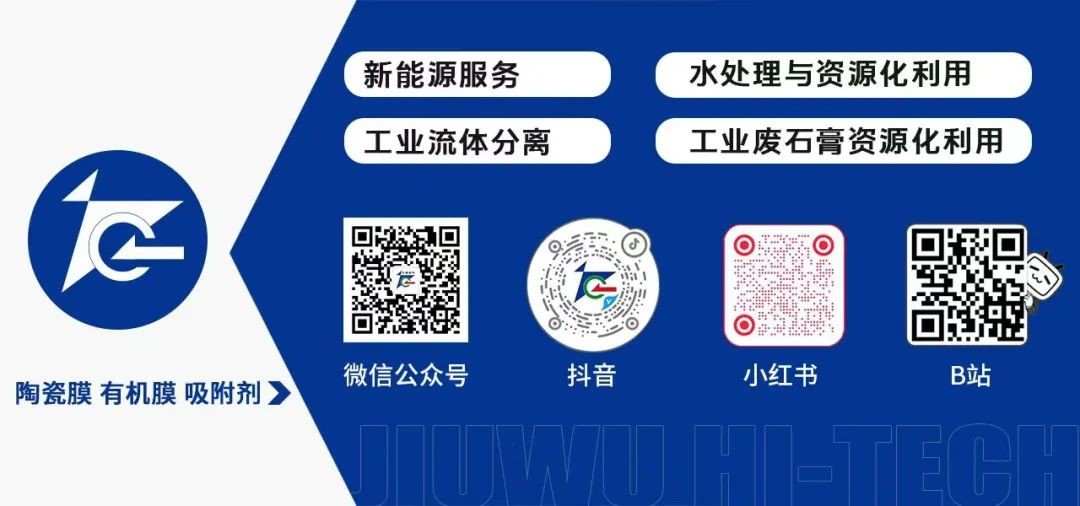On March 23, Xinhua Daily featured Jiuwu Hi-Tech on its front page, highlighting the company's contribution to the launch of the world's first original brine adsorption project. The Jiuwu Hi-Tech team overcame extreme environmental challenges, tackling the issue of material solidification during winter construction. Working an average of 16 hours a day, they competed on-site with five other companies in the same industry, ultimately delivering outstanding results, securing 75% of the project’s bidding sections.
As a "champion" enterprise in the ceramic membrane industry, Jiuwu Hi-Tech is one of the few in China to master the core materials, process technologies, as well as the full-service capabilities of "adsorption + membrane" lithium extraction from salt lakes. The company has been deeply involved in the construction of several China salt lake projects.

"Temperature and pressure parameters are stable, and the adsorption-qualified solution reaches the design indicators. It is expected to be officially put into production by the end of the month." At 8 p.m. on March 17, Gu Hao, a R&D engineer at Jiangsu Jiuwu Hi-tech Company located in Nanjing Pukou Economic Development Zone, just returned to his dormitory. On the other end of the phone, he was at the third-phase technical renovation site of the lithium project at Yiliping production area in China Salt Lake on the Qinghai-Tibet Plateau. Just 10 days ago, this world's first original brine adsorption project completed a trial feed after 10 hours of stable operation.
Lithium, known as "white petroleum," is a core material for power batteries. In China's lithium resources, the potential resource amount of salt lake brine accounts for more than 80%. Compared to extracting lithium from ore, extracting lithium from salt lakes is more cost-effective, has more mature technology, and has a vast market space. As a "single champion" enterprise in the ceramic membrane industry, Jiuwu Hi-tech is one of the very few China companies that master the core materials, process technology, and full-process services including commissioning, installation, and operation for lithium extraction from salt lakes using the "adsorption + membrane" method. They have deeply participated in the construction of multiple China salt lake projects.

Traditional lithium extraction from old brine not only involves a series of complex steps but also results in the loss of a significant amount of lithium salts. In contrast, Jiuwu Hi-Tech's "adsorption + membrane" technology can double the resource utilization rate. By the end of 2023, Gu Hao brought this technology to the Qaidam Basin to participate in the bidding trials for a technical transformation project in the Yiliping production area. "The average altitude is 3,000 meters, and in winter the temperature drops to -20°C. Every few kilometers, you enter a desolate, wildlife-free area," Gu Hao, a young man from Lianyungang, recalled. In this extreme environment, he and his team overcame the challenge of material solidification during winter construction, working an average of 16 hours a day. Competing with five other similar enterprises on-site, they ultimately delivered impressive results, securing 75% of the project's bidding sections.
Adsorbents are Jiuwu Hi-Tech's "exclusive expertise." After simple filtration, salt lake brine goes through adsorption, washing, and desorption steps in the adsorption unit to produce a qualified liquid with low impurity content and high lithium concentration. This liquid is then purified, concentrated, and chemically precipitated to form lithium carbonate products. Jiuwu Hi-Tech’s fourth-generation original brine lithium extraction adsorbent not only offers higher adsorption efficiency but, more importantly, shows better selectivity for lithium ions, with an adsorption capacity 30% to 50% higher than that of previous generations. This technology has won the "China Membrane Industry Patent Gold Award."
Deep in the vast Gobi Desert, salt lakes of various sizes dot the land like gemstones embedded in the earth's surface, and technological innovation has made these gemstones even more radiant. Thanks to Jiuwu Hi-Tech's process improvements, the lithium comprehensive recovery rate in the Yiliping production area has increased by nearly 100%, production cycles have been significantly shortened, and the annual lithium carbonate production capacity is expected to increase by 15,000 tons.
In a few days, Gu Hao will leave Yiliping for a new project. "Our projects are all on the 'roof of the world'. Watching bag after bag of lithium carbonate come off the production line is particularly rewarding," he said. For Gu Hao and his team, the commissioning of the project is just the beginning—whenever clients need assistance, they are always ready to respond immediately.





 Call us on:
Call us on:  Email Us:
Email Us:  No. 9 Yuansi Road, Pukou, Nanjing, Jiangsu, China 211808
No. 9 Yuansi Road, Pukou, Nanjing, Jiangsu, China 211808